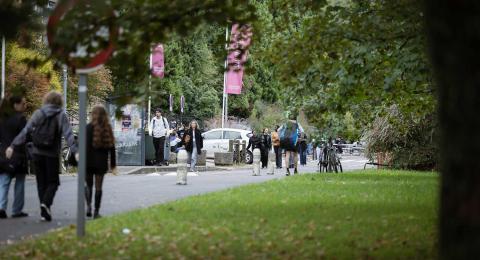M2 Operations Research and Risk Analytics



Information
Skills
Be able to model a complex system.
Objectives
Things always fail. If not managed properly, failures might cause great losses. Risk and Resilience Engineering and Management (RREM) is a discipline that investigates how to prevent and/or get well-prepared for the potential failures. The RREM master's program aims at providing the students from the second year of the master’s program a basic understanding of the fundamental problems, both research and application, that are frequently encountered in RREM and their corresponding solution methods/tools in a variety of societal and industrial sectors.
This program aims at training the students’ basic skills in researches and applications of RREM by providing a deeper understanding of the commonly used methods/tools in the modelling, analysis and optimization of risk, reliability and resilience of complex systems. In doing so, the program covers various topics, such as assessing a given system’s capacity to meet demand through modelling and analysis, predictive modeling, collecting and analyzing data for better decision-making, maintenance optimization, hazard prevention and disaster control, prognostics and health management, etc.
The objective of this program aims to help the students to formulate a clear framework of “body-of-knowledge” of the RREM, and equip them with some important methods/tools/skills they need to engineer solutions that are safer, more durable and more responsive to stress - whether that stress is degradation of a product, a malware, a cyber-attack or a hurricane. With the help of this program, the students will be able to :
•enter a fast career path on RREM in a variety of industries, including energy production and distribution, aerospace, automotive, railways, maritime, manufacturing, oil and gas, chemical, power transmission, medical device, infrastructure planning and emergency response sectors.
•conduct basic scientific researches in the field of RREM and ready to pursue a higher scientific degree, like a Ph.D. in RREM or related fields, such as industrial engineering, management science, applied mathematics, multidisciplinary simulation, etc.
With a Master's in RREM, graduates are qualified to fill demanding positions in companies, government authorities and organizations with safety and security functions, such as the nuclear regulation commissions. The degree is also an excellent basis for a career as a self-employed service provider or appraiser, e.g. for insurance companies. Areas of work could be consulting with company management on all questions of safety and security, the development of prevention, protection and security plans, the development of management systems and working in management.
Fees and scholarships
The amounts may vary depending on the programme and your personal circumstances.
Capacity
Available Places
Supporting documents
Compulsory supporting documents
Motivation letter.
All transcripts of the years / semesters validated since the high school diploma at the date of application.
Curriculum Vitae.
Additional supporting documents
Certificate of English level (compulsory for non-English speakers).
VAP file (obligatory for all persons requesting a valuation of the assets to enter the diploma).
Supporting documents :
- Residence permit stating the country of residence of the first country
- Or receipt of request stating the country of first asylum
- Or document from the UNHCR granting refugee status
- Or receipt of refugee status request delivered in France
- Or residence permit stating the refugee status delivered in France
- Or document stating subsidiary protection in France or abroad
- Or document stating temporary protection in France or abroad.




